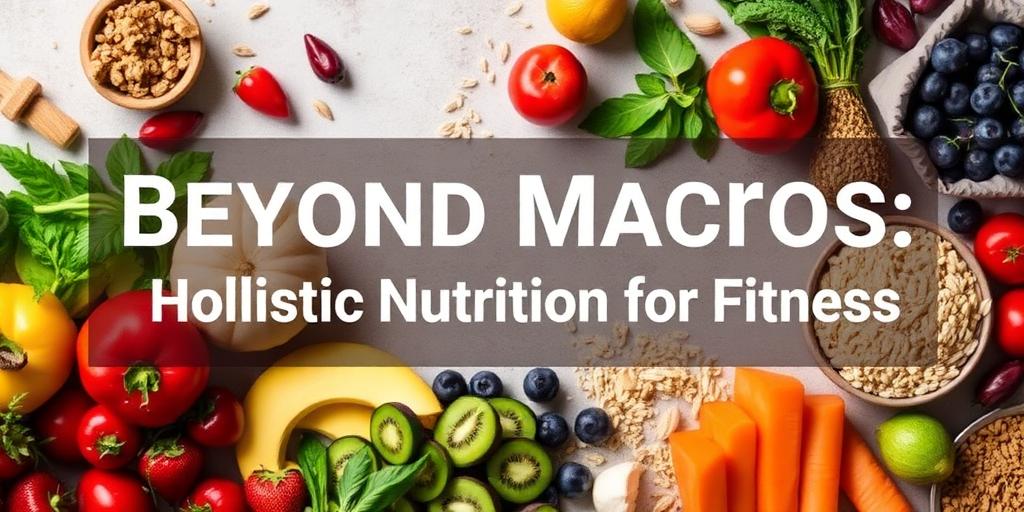Beyond Macros: Holistic Nutrition for Fitness
In the world of fitness, the discussion often revolves around macronutrients—proteins, carbohydrates, and fats. While tracking macros can be a useful tool, it's crucial to recognize that nutrition extends far beyond these three components. Holistic nutrition considers the interconnectedness of diet, lifestyle, and overall well-being, aiming to optimize health and fitness through a comprehensive approach.
Why Holistic Nutrition Matters
Focusing solely on macros can lead to a narrow and potentially unhealthy view of food. It might result in prioritizing processed foods that fit macro targets over nutrient-dense whole foods. Holistic nutrition emphasizes the quality of your food, ensuring you're not just meeting macro goals but also providing your body with essential vitamins, minerals, and antioxidants.
Key Principles of Holistic Nutrition for Fitness
Prioritize Whole Foods: Base your diet on unprocessed, whole foods such as fruits, vegetables, lean proteins, and complex carbohydrates. These foods are packed with nutrients that support energy levels, muscle recovery, and overall health.
Micronutrient Diversity: Ensure you're consuming a variety of vitamins and minerals. Different colored fruits and vegetables often contain different nutrients, so aim for a colorful plate.
Hydration: Water is essential for virtually every bodily function, including nutrient transport, temperature regulation, and waste removal. Drink plenty of water throughout the day, especially around workouts.
Gut Health: A healthy gut is crucial for nutrient absorption and immune function. Incorporate probiotic-rich foods like yogurt, kefir, and sauerkraut, as well as prebiotic foods like garlic, onions, and bananas to feed beneficial gut bacteria.
Listen to Your Body: Pay attention to how different foods make you feel. Some people may thrive on a higher-carb diet, while others may feel better with more fats. Adjust your intake based on your body's signals.
Practical Tips for Implementing Holistic Nutrition
- Plan Your Meals: Planning helps ensure you're getting a balanced intake of macros and micros. Prepare meals in advance to avoid impulsive, less nutritious choices.
- Read Food Labels: Become aware of what's in your food. Pay attention to added sugars, unhealthy fats, and artificial ingredients.
- Cook at Home: Preparing your own meals gives you control over ingredients and portion sizes.
- Manage Stress: Chronic stress can negatively impact your digestion and nutrient absorption. Incorporate stress-reducing activities like yoga, meditation, or spending time in nature.
- Get Enough Sleep: Sleep is vital for recovery and overall health. Aim for 7-9 hours of quality sleep per night.
The Role of Supplements
While a well-rounded diet should be your primary focus, certain supplements can help fill nutritional gaps. Common supplements for fitness enthusiasts include:
- Vitamin D: Important for bone health and immune function.
- Omega-3 Fatty Acids: Support heart health and reduce inflammation.
- Creatine: Enhances strength and muscle growth.
- Protein Powder: Convenient for meeting protein goals, especially after workouts.
Always consult with a healthcare professional or registered dietitian before starting any new supplement regimen.
Conclusion
Holistic nutrition offers a more sustainable and health-focused approach to fueling your fitness journey. By prioritizing whole foods, micronutrient diversity, gut health, and mindful eating, you can optimize your performance, recovery, and overall well-being. Remember, it's not just about macros; it's about nourishing your body from the inside out.









